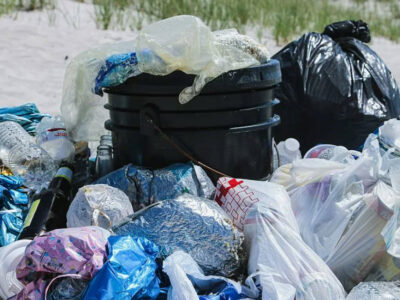Single-use plastic bag bans have successfully reduced plastic bag use and associated litter and pollution, a new study has found.
Bans in five US states and cities with a combined population of around 12 million people have cut single-use plastic bag consumption by about 6 billion bags per year, according to the research.
Adopting a ban that’s similar to the policies in these places could eliminate roughly 300 single-use plastic bags per person per year, according to the report.
Why are single-use plastic bags bad for the environment?
Single-use plastic bags are common sights along roadsides, rivers and coastal areas where many end up after being discarded.
They aren’t just unsightly; they can also be deadly to sea life and harmful to human health.
Littered plastic bags and films (like packaging) are frequently ingested by marine animals and cause more sea turtle and cetacean (whales, dolphins and porpoises) deaths than any other type of plastic.
The production, use and disposal of single-use plastic bags also releases emissions that harm our health and drive global warming.
Plastic bags are not biodegradable, so they can continue to pollute the environment with harmful microplastics for hundreds of years after use.

